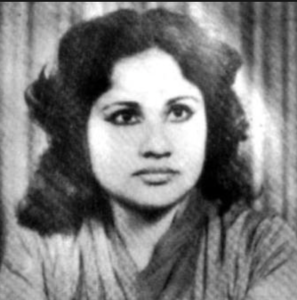Three News Articles


When Mom’s Zoom Meeting Is the One That Has to Wait by Jennifer Medina and Lisa Lerer
This New York Times article concerns women’s role as mothers and workers during the pandemic, and the difficulties faced. Problems such as managing childcare and how to do their job efficiently from home arose often. For example, miscommunication from spouses that did not share they needed to have meetings and that those meetings required to be uninterrupted made the mothers have to “figure out how to tend to their [children]” with little to no time, all while managing their schedules too. The only way to get away from everyone was to hide in the bathroom with the door locked, showing how stressful the time was. Saba Lurie is a therapist, and she reports that other women are experiencing the same troubles. The struggles Lurie and other women face are indicative of the caretaking role put on women and their bodies that their male counterparts often do not have the burden of carrying: “Even before the coronavirus crisis, women spent about four hours a day on unpaid work, like laundry, grocery shopping and cleaning, compared with about 2.5 hours for men.”
As in the reading we did for class for week nine’s unit focusing on Covid-19, race, and anxiety, “When Work Came Home: The Formation of Feeling Rules in the Context of a Pandemic,” this article also concerns gender inequality and the emotional and physical labor of women within the home. For example, the journal article mentions that “without adequate workspace and without childcare, life felt like triage for participants and elicited reflection on the gendered nature of household work.” The news article says something similar: “they have been slightly stunned to learn that they are expected to organize and manage every domestic need for their family, while maintaining a full-time professional career as part of a dual career couple.” So, in both readings, the gendered labor put on women’s bodies highlights that the role of caretaker, and problem-solver, among many more, is cast on them. Though there are many difficulties, it is crucial to note the resilience of these women. Though they should not have to, they find ways to manage, from bringing their kids to their zoom calls to making makeshift therapy rooms in the bathroom.



Column: Respectability has many forms: remembering Sara Shagufta by Kamran Asdar Ali

This column remembers Sara Shagufta, a wonderful and rebellious Pakistani poet who died by suicide. Kamran Ali focuses on a theatrical performance in memory of Shagufta and on a poem Shagufta wrote titled “Woman and Salt” to explain her life and impact. Ali writes, “Shagufta at this relatively young age, [29], had acquired fame as a poet who shunned convention in her verses and in her personal life (Ali, 2013).” She resisted norms and became known as “Urdu’s first angry poet,” a subversive state of being as anger is not an emotion women, especially brown women, are encouraged to feel (Ali, 2013). To allow yourself to not only feel but express your emotions and thoughts publicly is a radical act, especially when the feeling rules and social norms do not align. For example, Shagufta would not wear a dupatta and would be criticized for being promiscuous. She, however, would continue not to wear one showing her resistance, again, to norms.
Some “women distanced themselves from Shagufta by asserting their own respectable background,” showing the importance of respectability politics. Though the women “admired her courage to live life according to her wishes; an existence that did not conform to the drudgery of a married middle-class life and responsibilities that many found themselves trapped in,” they felt the need to distance themselves to maintain their image and family’s image. The quote touches upon two ideas: 1) the difficulties of married life because of the responsibilities which involve physical and emotional labor and 2) the importance of reputation. These ideas connect to a week seven reading titled “Love in Liminality: The Modes and Spaces of Intimacy in Middle Class Pakistan” by Ammara Maqsood. Difficulties of marriage come from the emotional labor of things such as having to tend to children, housework, and manage not only your emotions but others in the family too (Maqsood, 2021, p. 266). The text often mentions reputation regarding marriage and relationships, especially concerning women: “the insistence on “not being that type of girl” may just be a ploy, intended to safeguard reputation (Maqsood, 2021, p. 271).” “That type of girl” is understood as a woman who does not follow feeling rules or social norms or does not play hard to get. However, the term “hard to get” is problematic because it implies the notion of conquest, that a person is someone to be got, obtained as if an object. For this reason, Sara Shagufta was criticized as promiscuous and indecent for being in many relationships; however, she acknowledged nonsense in the criticism and used her voice to resist it. “Urdu’s first angry poet” had a lot of meaningful and necessary things to say, is and will continue to be remembered (Ali, 2013).

In this article, Abeer Mahar describes the feelings, traumas, and inhibitions that Brown women face as a result of their displacement and adjustment into a new family. As a patriarchal society that values joint, multi-generational households, newly-wed Brown women leave their own family home to join their husband’s home. Within this process, many women discover that they were never educated about the resentment, grief, and bereavement they would have to maneuver in their new home. Newly-wed Brown women are expected to “change [themselves]” to fit into their new environment by “[taking] up less space, [neglecting to] speak their minds, and being subservient to not just their husbands but everyone in his family.” This article speaks to the brave, bold faces many young brides feel they must perform to be accepted into their new lives.
Along with their new families telling them to be grateful, these women are repeatedly fed messages that force them to deep act their emotions away. Brown women are told positive, fulfilling stories of life in the joint family, but not ones of the burdens it has on the Brown body. The stories that are propagated feature women as moody and difficult bridezillas instead of those of women experiencing moments of extreme change, uncertainty, and newness. The author writes, “Listening to these stories made me feel like I hit the jackpot with my in-laws. So why was it that I felt this strange sadness that over took me randomly? Often, I silenced that feeling because of the horrors stories I had been listening to for almost a year.” The feeling rules of the post-marriage period “guide emotion work by establishing the sense of obligation” Brown women have to perform “positive” feelings in front of their new families (Hochschild 1979, 58). Hence, they silence their sadness and resentment, denying themselves of their valid feelings as they do not want to be seen as ungrateful or unloving towards their husbands. These women tell themselves that “they’re not the first to part with their families” and that their feelings are inappropriate because they encounter “cajoling, chiding, teasing, scolding, and shunning” that operate as forms of “ridicule or encouragement that lightly correct their feelings and adjust it to convention” (Hochschild 1979, 60). Through various amalgamations of internal and external surface and deep acting, Mahar explains the emotional labor many women feel they must do to “adjust” into their new space.











